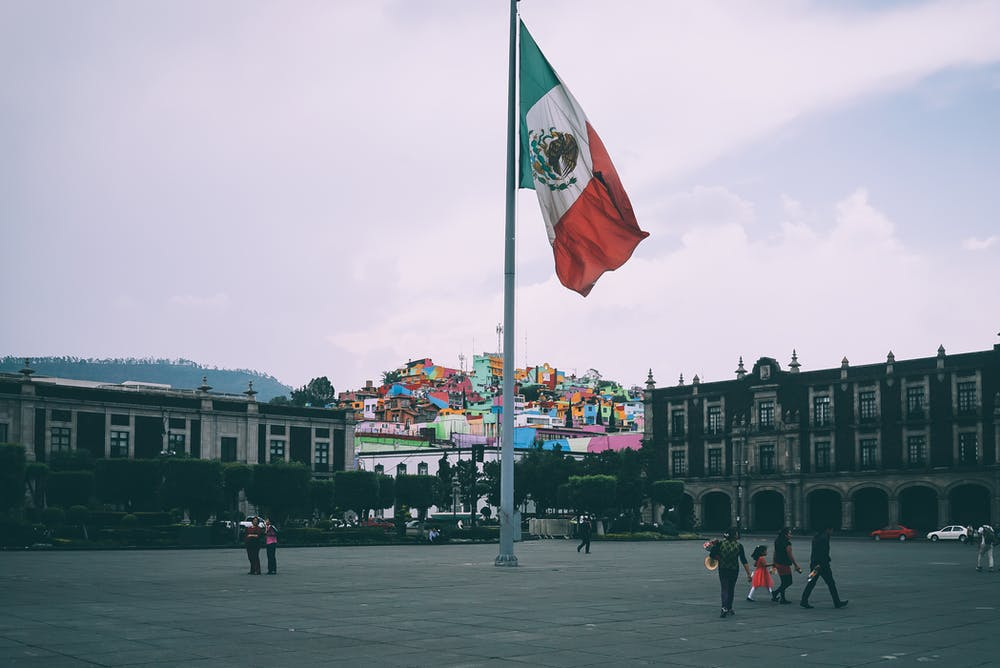Narcos Mexico Season 3: Thankfully It Goes Well Beyond Narcos
November 2021
The latest season presents multiple perspectives on the origins and consequences of Mexico's intractable drug war
The third season of Narcos Mexico -- released in November 2021 -- is far more than another show about Mexican drug kingpins. It does an excellent job of showing how the increasing lawlessness and corruption in Mexico not only created fertile territory for drug smuggling but general lawlessness where ordinary citizens became targets of the violence. The show also gives a human face to unsympathetic groups like Mexican cops and drug smugglers themselves who, despite their faults, show their compassionate and caring sides. The show reminds us that violence and war leave no one unscathed.
The first sympathetic character from an unsympathetic group is a Juarez cop, Victor, who is troubled by the number of disappeared women in Juarez. The show takes place in the early to mid-1990s right at the time the number of disappeared women began to increase in Juarez (a trend which has spread rapidly to the rest of Mexico in the current day). Victor makes a point to investigate the disappearance of a young female whose mother’s hopelessness shakes him. Victor visits the morgue multiple times in search of this mother’s daughter only to find scores of other murdered, unidentified young women. His quest to not only find the missing girl but then identify her killer seems hopeless but Victor, nearly delirious in his single-minded focus, continues.
Victor becomes so determined to find the missing girl and her killer he gets a job working security for a criminal who runs a brothel so that he can obtain information to pass along to the American DEA. After he finally finds the girl's body, Victor hopes the DEA will be able to help him with DNA identification of the girl’s killer -- a technology to which he, as a Mexican cop, lacks access. Victor’s contact with the DEA ultimately costs him his life as the criminal finds out he is speaking to the DEA and has him murdered. Victor is a lone cop whose intention to actually solve a murder costs him his life.

The impunity for murders in Mexico today is around 90 percent, and anyone who seeks to seriously investigate murders faces seemingly insurmountable motives. We see many of Victor’s colleagues engaging in corruption. We see criminals who have more power than the police. In this light, Victor’s motives just don’t make sense and he comes across as crazy. Victor is a metaphor for those hoping to stop the violence in Mexico. If you are determined to make a difference, you come across as crazy because it is so hopeless and you will only just get yourself killed. The case of Victor provokes timeless moral questions. If you were a cop in Mexico, would you go with the flow to stay alive or do the more morally right thing? Similarly, if you lived in Nazi Germany would you go with the crowd or do the morally upright thing and fight back?
The show also details the increasing danger for journalists in Mexico that began in the 1990s and has made Mexico into one of the most dangerous countries to be a journalist. La Voz, an independent newspaper in Tijuana that investigates the links between narcotraficantes and the government, receives multiple threats throughout the show. In one scene, a talented older, veteran journalist quits due to the threats. In another, a young, fearless female journalist is directly threatened. In contrast to her older colleague, she stays on the job. The possible message of this contrast is that the young and idealistic are the only ones crazy enough to continue in the face of death threats in a country where the press is not protected by the government.
Yet the message is also that an independent press is necessary to keep the powerful in check. La Voz uncovers a connection between Jose Rebollo -- a powerful Mexican general -- and drug traffickers which leads to his arrest. The paper also investigates links between Carlos Hank Gonzalez, a wealthy businessman who has immense influence in Mexican politics, and drug traffickers.
And yet uncovering the link between General Rebollo and drug traffickers highlights another intractable problem. Those in command of the police and military in Mexico will often use their forces to battle one drug cartel not to stop drug trafficking but rather to help a rival drug cartel gain control of an area. Before his arrest, Rebollo’s troops were battling a cartel in the Tijuana area which was ultimately just a way to allow for the cartel paying Rebollo to move into the area. The alignment of government forces with different cartels, who fight the rival cartels’ of their patrons, is all too common in the Mexico of today.

If there is one group missing from the series it is the drug users in the United States whose consumption funds the drug war. Without the U.S. drug consumer, the cartels would not have the money to bribe the Mexican government and the societal breakdown in Mexico would surely be less severe. Perhaps the show does not go there to keep the focus squarely on Mexico or perhaps it is so obvious a connection it does not need to be made explicit.
Narcos Mexico Season 3 is a pleasure to watch because it goes far beyond the drug kingpins themselves (although they play a prominent role in the show as well). As enjoyable as it is to watch, it is equally sad and frustrating because the trends it highlights have only worsened over the last three decades from when the series took place. Moreover, the characters who attempt to fight back against the injustices are portrayed as both alone and crazy. This is by far the most frustrating aspect of the show: there seems to be no realistic solution to the terrifying problems facing Mexico.
